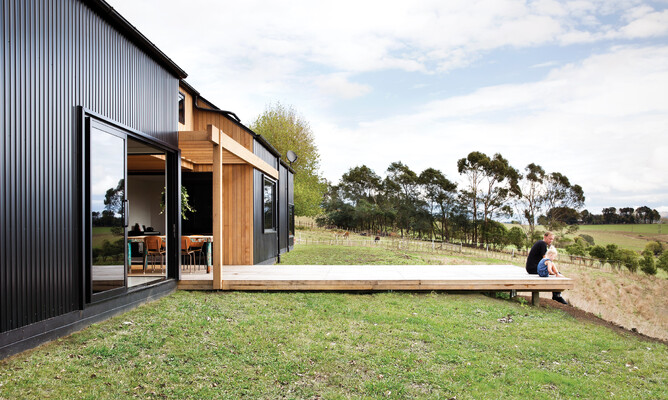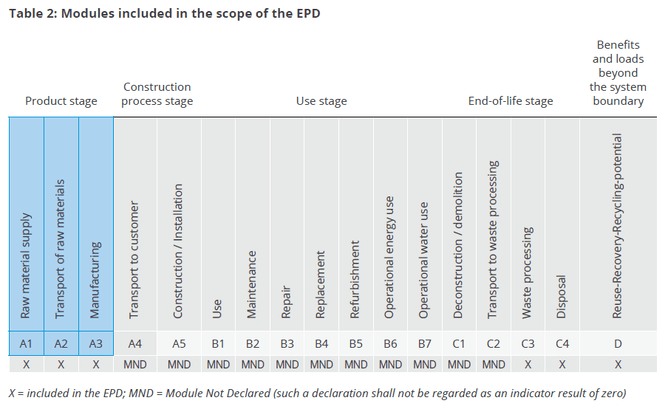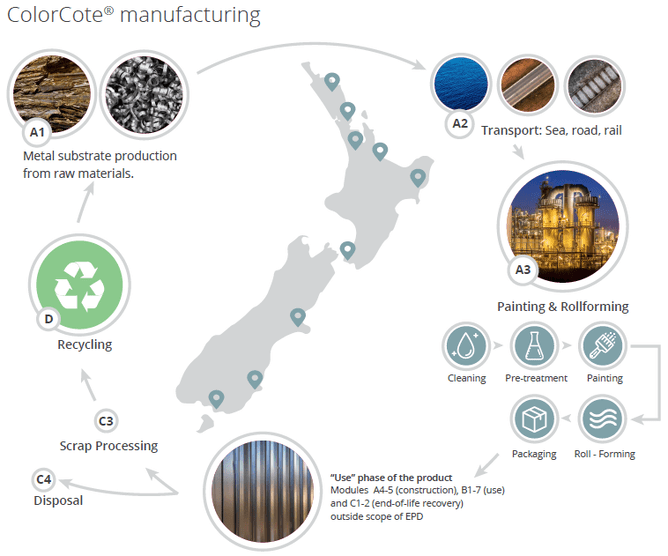On 12th April 2019, Pacific Coilcoaters released their Environmental Product Declaration to the market for its ColorCote® ZinaCore™, MagnaFlow™ and AlumiGard™ products.
What is an EPD?
An Environmental Product Declaration (EPD) is a form of ecolabel - a product-specific environmental score card providing quantified environmental data based on Life Cycle Assessment (LCA).
A Life Cycle Assessment (LCA) evaluates the environmental impacts associated with a product over its lifespan, from the extraction of raw materials, processing and manufacture to distribution, service, maintenance, reuse, and waste disposal or recycling.
Why do EPD’s matter?
New Zealand’s Building Code has long been criticised as lacking in substantial environmental and performance compliance requirements compared to that of other countries. This is an issue that the New Zealand Green Building Council has taken the lead on in terms of promoting sustainable and better performing homes through the introduction of its Homestar rating program.
To rate a home’s performance and environmental impact, Homestar awards points across seven categories: energy, health and comfort; water; waste; materials; site; home management; and an optional innovation category.
EPD's allow homeowners, architects and designers to make informed decisions on choices of building material when thinking about home sustainability and performance.
ColorCote’s EPD Advantage
ColorCote’s EPD is unique in the fact that the Manufacturing Assessment (Module A3) component includes the roll forming process and packaging (by its customers) of the ZinaCore, MagnaFlow & AlumiGard products into the desired end product i.e. roofing, cladding or rainwater products.
Unlike other industry suppliers, ColorCote’s EPD considers all processes from raw materials to the point the roll-formed product is ready to leave the manufacturers store, giving a holistic view of the product.
Above: ColorCote Manufacturing Life Cycle



